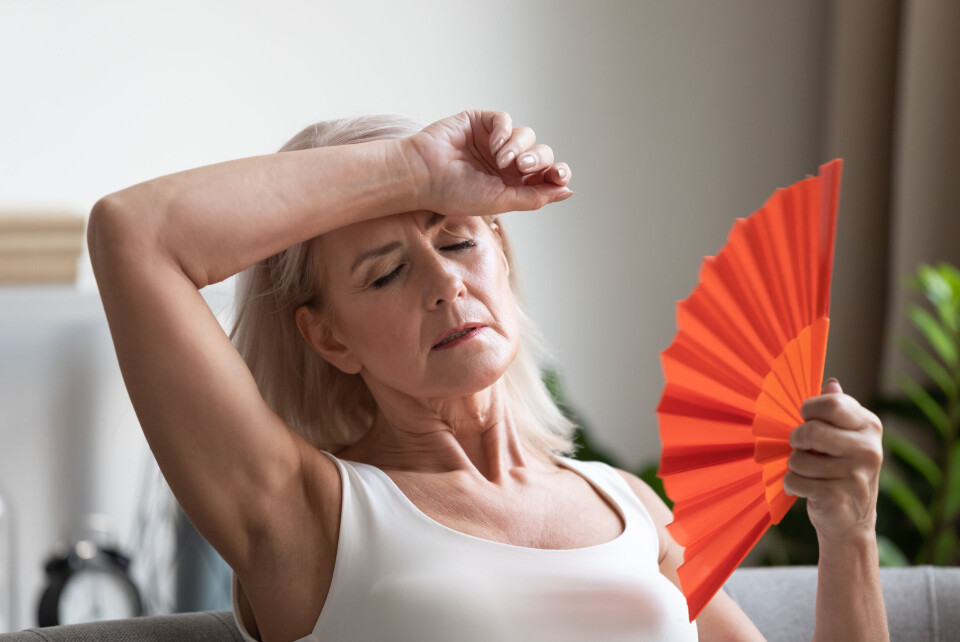-
March 1 or March 20 - why are there two dates for the start of spring in France?
The meteorological calendar is becoming increasingly popular
-
French weekly weather forecast March 2 - 6: warm and dry before rain returns
Highs of 18C, considerably above seasonal averages, expected
-
I’m an estate agent and these are the five errors that newcomers make in France
In our new regular feature experts share their advice for avoiding common pitfalls when moving over
Tips for keeping your home cool during heatwaves in France
France’s ecological transition agency has issued some tips that are also eco-friendly

Close the shutters, hang a damp sheet, and use a fan: These are some of the tips shared by France’s ecological transition agency on how to keep your house cool.
The Agence de la transition écologique (Ademe) issued the advice in a guide entitled ‘Garder son logement au frais (Keep your home cool)’.
First published several years ago, they are nevertheless useful in any summer, as several bouts of heatwaves are expected during the warmer months of the year.
Its tips include:
- Close the windows before the outside temperature exceeds that of the inside
- Close or drop the shutters to avoid the sun from blazing through the windows (aim to keep them closed at least from 10:00 to 18:00)
- Leave interior doors open to allow air to circulate
- Early morning, evening, and night, leave the windows and doors open to create air currents
- Limit the use of any sources of heat, including electronic gadgets like laptops, TVs, or computer games, as well as the oven or cooking and cleaning appliances
- Hang a damp sheet in front of an open window, or a fan, to ventilate the space
- Dry your clothes washing inside, as the dampness will help to add moisture to a hot space
- If you need to and can, sleep in rooms that face south-east or east. This means that you will get light in the morning, but the rooms will stay in shadow and remain cool during the day
- If you have a roof window, open it in the evening to allow any warm air to escape
- Prioritise indoor plants with large green leaves, and put them close to windows (but with the shutters down). Mist them frequently using a spray bottle filled with water.
Other tips include using 100% cotton sheets (as they are more breathable), and placing them in a plastic bag, and putting them in the freezer for a few minutes before getting into bed; or putting a (tightly sealed!) bottle of cold water in your bed.
[#VagueDeChaleur] 🔥
— ADEME (@ademe) July 30, 2021
Les périodes de fortes chaleur sont particulièrement difficiles à vivre en #ville car il existe un phénomène d’îlot de chaleur #urbain.
➡️ Découvrez le guide de l’@ademe qui recense 19 solutions pour rafraîchir les villes !💨🏙
👉 https://t.co/fpiyOhlpNj pic.twitter.com/SIqSdTPqfi
Fans, not air conditioners
Ademe said that although 25% of homes in France have an air conditioner, these can cause your electricity bill to rise by 15-25%.
It also said that air conditioning was responsible for 40% of greenhouse gas emissions generated by the building sector in 2020, so highlighted that it is not the most eco-friendly way to cool down and could make the planet hotter overall.
As a result, Ademe said that if possible, and if there are no vulnerable people in the home (such as older people or those with chronic illness), residents should try alternative means to stay cool rather than using air conditioners.
Instead, it recommended that people use fans (in contrast to central air conditioners). In a statement, the agency said: “Fans create air movements which, as they pass over the skin, promote the evaporation of perspiration and give an immediate sensation of coolness.”
Fans do not cool the air, however, so you can try some tricks to make it feel colder.
“Placing a bottle of frozen water, an ice pack, or a wet cloth in front of your fan will circulate even cooler air,” Ademe said.
























